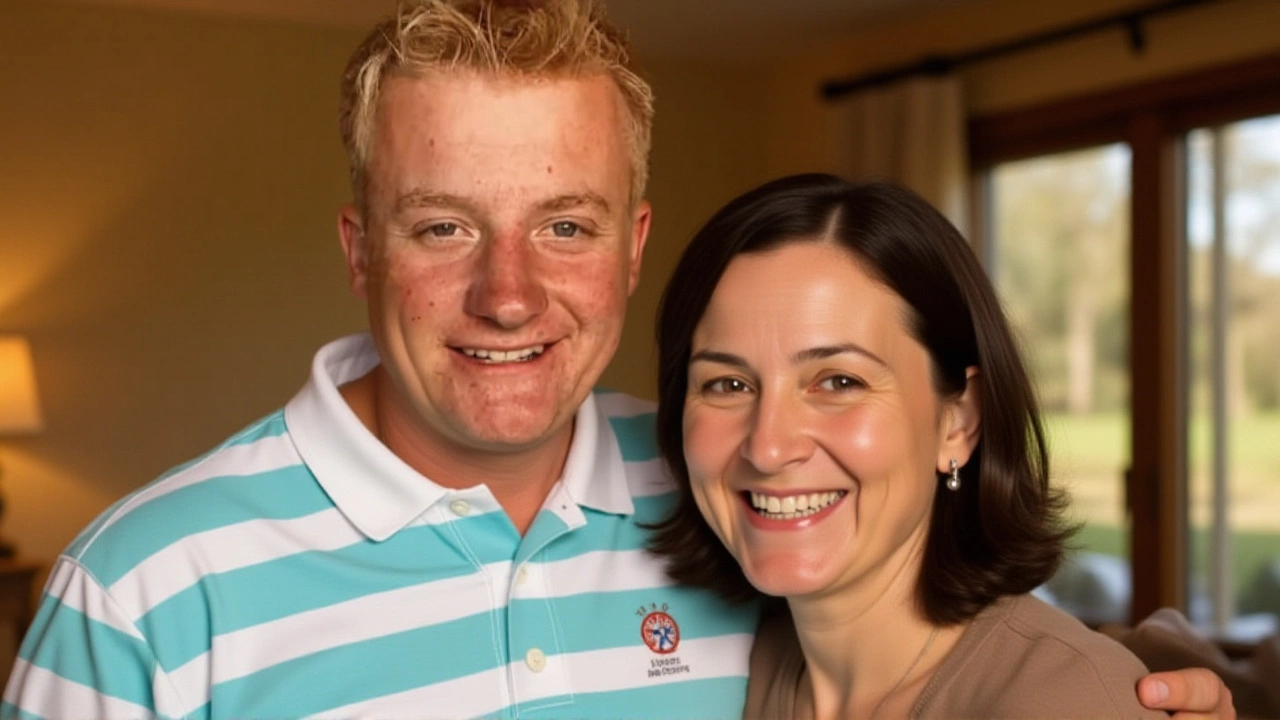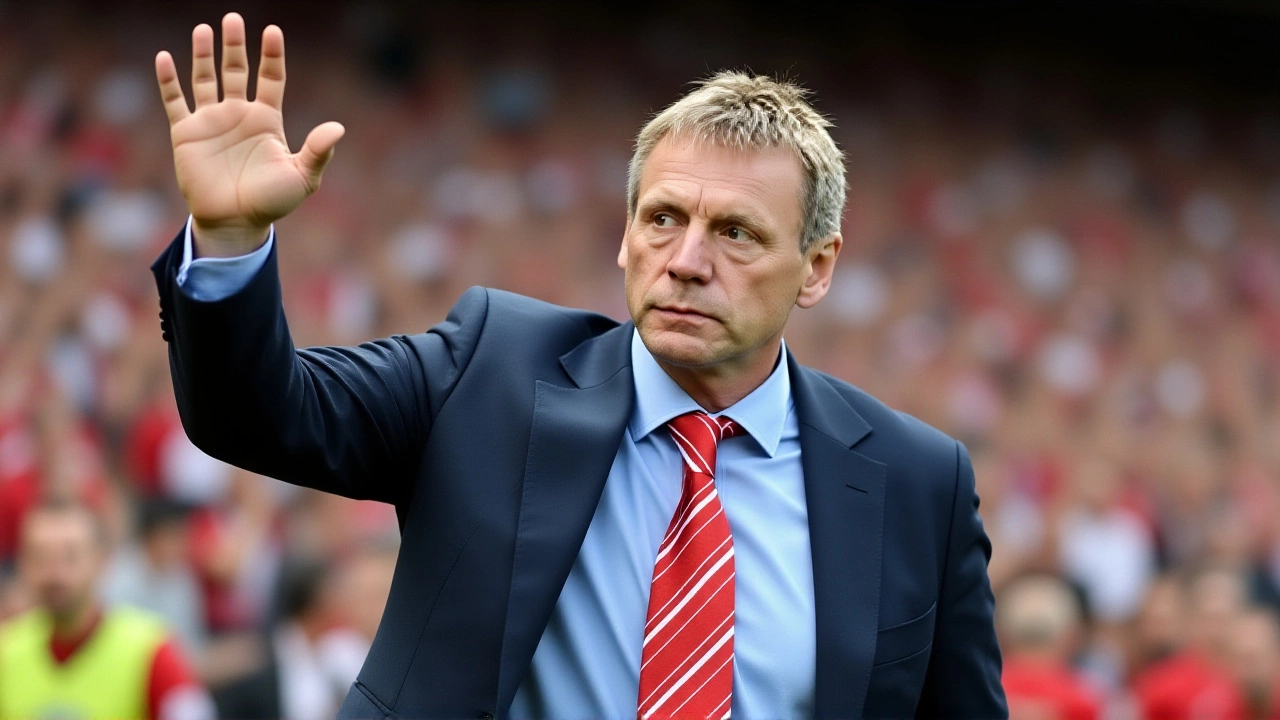When Stuart Pearce, former England defender suffered a sudden cardiac episode aboard a Virgin Atlantic flight on 2 March 2025, the incident sent shockwaves through the football world. The emergency unfolded at 30,000 feet over the Atlantic, forcing the aircraft to divert to St. John’s International Airport in Newfoundland, Canada. Within minutes, Sam Matterface, Pearce’s teammate at talkSPORT, confirmed the former captain was "in great spirits but not 100 %". The cabin crew manager, Zoe Anderson, later described the rapid medical response that likely saved his life. The drama didn’t end in the air – Nottingham Forest Football Club and Manchester City Football Club paid tribute during their Premier League clash at the City Ground on 8 March 2025. In short, a routine transatlantic journey turned into a medical crisis that has kept a football legend under Canadian hospital care while fans across the globe send well‑wishes.
Background on Stuart Pearce
Born on 24 April 1962 in London, Pearce earned the nickname "The Beast" for his tenacious defending. He turned out 401 times for Nottingham Forest between 1985 and 1997, winning two league titles and the 1990 FA Cup. Internationally, he amassed 78 caps for England, famously scoring the decisive penalty in the Euro 1996 quarter‑final shoot‑out against Spain. After hanging up his boots, Pearce transitioned to punditry, becoming a regular voice on talkSPORT and a respected analyst for the BBC.
In‑flight emergency and emergency landing
The flight – a Virgin Atlantic service from Harry Reid International Airport in Las Vegas to London Heathrow Airport – was expected to be a straightforward 10‑hour hop. About an hour after take‑off, Pearce reported crushing chest pain and a heart rate that spiked to 155 bpm. Cabin crew members, trained in first‑aid, administered oxygen and monitored his vitals while the flight deck coordinated with medical consultants on the ground.
According to Anderson, “We got a call from the pilot. They needed us to prep the cabin for a potential diversion. I grabbed the automated external defibrillator, and we were ready within minutes.” The pilot declared a medical emergency, and the aircraft altered its course to the nearest suitable airfield – St. John’s International Airport, situated at 46° N, 52° W.
Upon landing, paramedics took Pearce to a local hospital where doctors performed an emergency electrical cardioversion – effectively stopping and restarting his heart. Hospital officials, who wish to remain unnamed, said the procedure was successful and that Pearce is now in a monitored recovery ward.
Reactions from the football world
News of the emergency broke the next day, prompting an outpouring of support on social media. During the Premier League fixture on 8 March, the City Ground’s big screen flashed a simple “Get Well Soon Stuart” message at the three‑minute mark – a nod to Pearce’s iconic number 3 shirt. Manchester City fans echoed the sentiment, with many posting the club’s crest alongside well‑wishes.
“I spoke to him yesterday, he’s in great spirits,” Matterface said on air during the Nottingham‑Manchester match commentary. “He isn’t 100 %, that’s definitely the case, but he is in the right place, he is in the hospital. They are dealing with it.” The pair’s camaraderie, cultivated over years of joint broadcasting, added a personal touch to the public update.
Later, on 31 March, Pearce appeared on ITV’s This Morning. In a candid interview, he recounted the ordeal, thanking crew members and admitting that “the scare reminded me how fragile life can be, even for a former footballer who’s used to taking hits on the pitch.” The segment also highlighted the crucial role played by volunteer medical professionals who happened to be on board, a rarity on commercial flights.
Medical details and recovery outlook
Doctors diagnosed Pearce with an acute cardiac arrhythmia, likely triggered by stress and dehydration from his recent travel schedule – he had just attended a Super League rugby match between Wigan Warriors and Warrington Wolves at Allegiant Stadium on 29 February.
While the exact prognosis remains under observation, physicians say the fact that Pearce received immediate defibrillation and is now stable bodes well. “His heart rhythm has reverted to normal, and we’re monitoring for any residual effects,” a hospital spokesperson told Inside World Football. Pearce is expected to undergo cardiac rehabilitation for several weeks before being cleared for regular activity.
Family members, including his partner who traveled with him, have remained close, and the football community continues to rally with fundraising drives aimed at covering any medical expenses not covered by insurance.

Broader implications for air travel and high‑profile passengers
Pearce’s incident shines a light on the importance of onboard medical preparedness. Virgin Atlantic, which operates a fleet of Airbus A350‑900s on the London‑Las Vegas route, reports that the crew’s response adhered to ICAO guidelines for medical emergencies. The airline has since announced a review of its emergency medical kits, adding extra AEDs and training sessions for cabin staff.
From a sports‑industry perspective, the episode underscores the rigour required in managing the health of retired athletes who often maintain demanding travel schedules for media duties. Sports clubs, especially those with former players in pundit roles, may consider implementing regular health screenings to mitigate similar risks.
Key Facts
- Reason for emergency: acute cardiac arrhythmia (155 bpm heart rate) at 30,000 ft.
- Flight: Virgin Atlantic, Las Vegas → London, diverted to St. John’s International Airport.
- Date of incident: 2 March 2025; hospital update given on 4 March 2025.
- Primary responders: cabin crew manager Zoe Anderson and volunteer medical staff.
- Tributes: “Get Well Soon Stuart” display at City Ground during Nottingham vs Manchester City, 8 March 2025.
What’s next?
Pearce is expected to remain in the St. John’s hospital for observation over the next two weeks. Upon discharge, he will likely return to the UK for a full cardiac rehabilitation programme, after which he hopes to resume his broadcasting duties at talkSPORT. Virgin Atlantic will publish a post‑incident safety report in the coming months, and the football community is planning a charity match later this year to raise funds for cardiac research.
Frequently Asked Questions
How did the in‑flight emergency affect Pearce’s upcoming broadcasting schedule?
Pearce has paused his regular shows on talkSPORT until his doctors clear him. He told This Morning he hopes to return by late summer, once he completes cardiac rehab and gets full medical clearance.
What medical procedures were performed on the flight?
Cabin crew administered oxygen and used an automated external defibrillator (AED) to stabilise his rhythm. The definitive electrical cardioversion took place after landing at St. John’s International Airport.
Why was St. John’s International Airport chosen for the diversion?
At 30,000 ft the aircraft was over the Atlantic, and St. John’s offered the closest runway equipped with medical facilities capable of handling a cardiac emergency, making it the safest option for an immediate landing.
What impact did the incident have on Virgin Atlantic’s safety policies?
The airline announced a review of its medical kits, adding extra AEDs and expanding crew training. A detailed safety report will be released later this year, highlighting lessons learned from the emergency.
How have fans and former teammates responded to Pearce’s condition?
Support has poured in from across the football world – messages on social media, the City Ground tribute, and a proposed charity match. Former teammates, including former Forest captain Andy Reid, have publicly wished him a swift recovery.
